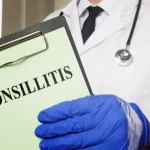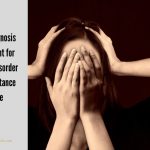
Image Source: Pexels
Testing positive for HIV, or any STD for that matter can be a harrowing experience. There are many uncertainties and unknowns that can paralyze your ability to feel optimistic about the future. Delivering the news to parents and loved ones may even seem worse than the diagnosis. According to Avert, when someone has just been diagnosed with HIV, telling other people is one of their main concerns.
It’s natural to worry about loved ones seeing you differently. Whether you’re a teen living at home with your parents, or an independent adult leading a separate life altogether, telling those you love can be a challenging, but helpful part of the recovery process. In a bid to ease the burden, here are a few tips on the best way to tell your parents about your HIV (or STD) diagnosis: (See also: Sexual Health And The Possible Dangers Of Unprotected Sex)
1. Find a quiet and safe place
Parents can react in many different ways when they feel that their child’s health is at risk. According to CDC.gov, taking medication and eating a balanced diet can help you live a normal life. The diagnosis and treatment of HIV are rather simple, but telling loved ones can be an embarrassing & painful process. A social environment like a gathering or noisy restaurant isn’t the right place to disclose sensitive news like this. Instead, find a quiet place where you can talk in private. Picking the right time is important and you don’t want to bring up the topic in an environment that doesn’t feel calm & supportive. It’s a good idea to plan it out methodically in your mind.
Sit down with them, and take the time to ask a few questions first. Try to find out how much they know about HIV and ask what their opinion is of the people that have been affected. Once the conversation feels safe and understanding, you can talk about your experience.
2. Be the first to tell the person you trust the most
The last thing you want is for your closest friend or family member to find out about your diagnosis from someone else. If you’re going to tell your parents separately, maybe they’re divorced or you feel closer with one parent, it’s usually best to first inform the one who makes you feel most at ease.
If your parents are still together, telling them at the same time may help you share the news with siblings and other close family members. It’s advisable to disclose your diagnosis privately & intimately, rather than to your entire family in one setting.
3. Encourage them to ask questions
After telling a loved one about your HIV diagnosis, try to anticipate their concerns by addressing important information like how long you’ve been infected, fertility risks, medications you’ll be taking, and your expected quality of life moving forward.
Having a booklet or article with you will help put them at ease. The people who care about you the most will be concerned with how you’re feeling & coping, rather than judgemental. Support and communication can help strengthen your relationship even further.
Encourage them to ask you questions and share how they feel about the situation. It’s alright if you don’t know the answers to some of their questions. This will encourage you to go online together, or maybe even go to the doctor together. Communication is an important part of the healing process, and dealing with a diagnosis by yourself can make it much harder to cope.
4. Give your parents some time to process the news
It’s important to consider that your parents’ initial reactions may not be reassuring. In which case, don’t push your parents too hard, instead give them time to process the news. Parents will often feel that they’re going through this with you.
Living with HIV or an incurable sexually transmitted disease may be less stressful than one might imagine, but keeping your diagnosis a secret can have long-term effects on your mental and emotional health, according to WebMD.com.
5. Let the clinic do it for you
Many young people don’t get tested to avoid this complicated paradox, but risking health to “save face” is like taking a gamble on your life. According to homestdtesttalk.com, over 60% of human immunodeficiency virus (HIV)-infected individuals remain untested, accounting for over half of new HIV transmissions. When HIV is left undiagnosed & untreated, men, women, and infants are at risk for severe, lifelong health complications. It’s best to learn your status as soon as possible, and then share your diagnosis with loved ones.
If you aren’t too sure how your parents will react to the news, the best alternative is to let a physician or counselor at a testing center do it on your behalf. Consider testing yourself in the privacy of your own home, and heading to a counselor with your family to digest the diagnosis together.
Counselors at STD Testing centers have years of experience helping families cope, and they are adept in ways of communicating the delicate news with various personalities. Your parents will probably need a lot of emotional support that you may not be able to offer. However, well-trained nurses, doctors, counselors, and support groups are available to help you through the process.
A Parting Piece of Advice
Keeping a diagnosis to yourself can cause undue stress and anxiety while receiving support from friends and family can make your relationships stronger and help you stay positive.
Breaking the news to your parents is not easy, but it’s often necessary. This particularly applies to teens who should promptly disclose the information to reduce the risk of lifelong challenges and complications resulting from HIV.
About The Author:
![]() Camila Villagonzalo is a blogger and part-time assistant at a tech company. I enjoy writing on topics in mental & sexual health and politics.
Camila Villagonzalo is a blogger and part-time assistant at a tech company. I enjoy writing on topics in mental & sexual health and politics.




